So here’s the scenario – the power goes out and you’re sheltering inside the house. Outside, the temperature plummets, the wind picks up and it starts to snow. You don’t know when the power will be restored. It might be hours or days. How will you stay warm and safe? How do you get started?
by Leon Pantenburg
Where I grew up in Iowa, this situation was common. It seems like every winter, there would be spell where a blizzard knocked out the electricity, or ice covered the trees and down they went – over a power line – and we’d have to fend for ourselves on the farm.
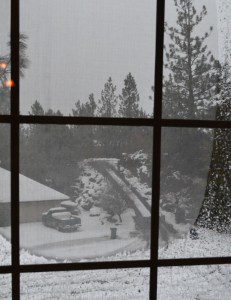
When the power goes out, and the blizzard starts to rage, know what to do to stay safe and warm inside your house. (Pantenburg photos)
But since this situation was expected, everybody I knew had some sort of storm plan.
Keeping warm at my parents’ place was was not a problem. The farmhouse was heated with several oil burning stoves that didn’t rely on electricity. We also had candles and some kerosene lamps for lighting. The stove and oven were gas.
But for people with no experience with winter power outages, a power outage can be dangerous. There are few areas of our country where the winters are not freezing cold, with a guarantee of some sort of blizzard, snow or ice event, so protect your family and be ready for this winter storm situation.
Top Tips to Prepare Your Home For a Winter Storm Power Outage
BEFORE THE STORM HITS
– For the rural homesteaders who typically get several feet of snow, it’s not uncommon to cover the north side of the house with clear visqueen early in the season to seal off the wind and nail it into the siding. They pile bales of hay or straw around the foundation, and stack them up high. We used to shovel the snow after a storm up high around the foundation for insulation, especially on the windy side of the home. I wouldn’t expect that kind of preparation from the city dwellers or just for an expected short term blizzard or ice storm. But there ARE things you can do to be proactive.
– Hopefully, you will have double-pane windows that are insulated and well-sealed. If not, or you notice a draft around the edges. You can cover the windows on the outside with Visqueen Plastic Sheeting and a simple staple gun, or use the newer Shrink Film kits for the inside. Check and repair the caulking around the window seals. Don’t seal the house to be completely airtight! Carbon monoxide is a real danger with any heat source that relies on a flame!
– Have your water pipes been insulated? If not, that is one of the first tasks that should be done before the temperatures dip below freezing.
USE YOUR COMMON SENSE AND RESOURCES INSIDE WHEN THE POWER FAILS
– Close off the parts of the house you aren’t living in. For a major storm and potential for electricity to fail, make a plan to pull everyone into a smaller area of the home to conserve heat and resources. Hang blankets over doors, and roll up towels to put at the bottom of doors and windows. Cardboard, cut to fit, is a great insulator, but it blocks the light. The real key to insulation is to stop the drafts from the wind.
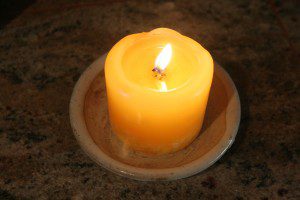
A single candle may provide enough lighting in some power outage situations.
– Lighting: Make the best use of light sources in the smaller area. By pulling family together, several people are able to use the same light source simultaneously in activities such as reading around the same lighted candle or lantern. It also contributes to a shared purpose and sticking together during times of trouble. Stock up on candles and hurricane lamps , which are my favorite way to project light. I have quite the collection of vintage Kerosene Lanterns but I reserve those for outdoor use – it’s a good solution in a blackout to have those in the garage. (collecting vintage lanterns)
Here’s an interesting post I’ve read about homespun lamps and oils, and how to use them.
– Don’t waste batteries. Schedule regular radio listening times as a family and go for favorite music programs. Music is an upbeat and proven boost to spirits in a scary, emergency situation. If the lights and heat are out for a couple days, it can get depressing and folks start to become irritating. Count on music to help you get through it. Get a hand-cranked lighting source, and some have a radio with cell phone charger. And most important – know how to use it.
– The drinking water should be poured, stored and kept some place where it won’t freeze. We keep ours in the bottom of a closet and our big jugs are in a spare bathroom tub.
– You should still be able to flush the toilet by pouring water in the commode tank or directly into the bowl.
– Do off-grid cooking in the garage, some well-ventilated area or outside under a roof overhang. You can use your propane barbecue outdoors for most of the cooking your family needs. If it’s not windy and just snowing, you can set up a 10-foot canopy over the cooking area and bundle up. My favorite outdoor, all-purpose cooker is the Camp Chef Propane Cooker with cast iron Dutch ovens. Some folks like to set up their Coleman Camp Stove when the power goes out. You must take care to ensure that any cooking you do is in a well ventilated area. Be downright paranoid about carbon monoxide poisoning and you’ll keep your family safe.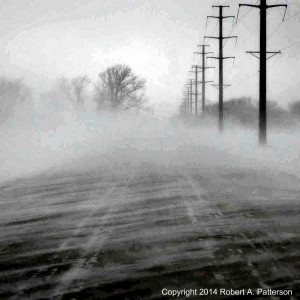
– Seal up your freezer tight and do NOT open it until over 24 hours have gone by. That will keep food frozen as long as possible – at some point, when the temps inside the freezer start to rise, you can move food outdoors if it’s under 32 degrees and store in coolers. Check out this article for best information about temperatures for food safety. My family does a lot of outdoor cooking, so we’re comfortable in that scenario, and when the power goes out, we cook up the cold food first. It’s not a bad way to spend the time, and the whole family can get involved. Your storage food pantry will come in handy if you’re off the grid for more than a few days.
– Have lots of board or card games around. Many of them can be played around a single lighted candle. During one memorable Iowa blizzard many years ago, my entire family played Monopoly for nearly three days straight! I went bankrupt several times! My wife remembers a horrible holiday in Mississippi where the power went out for days and the family was not coping well. Work to make it a fun time, by being prepared and using common sense. It doesn’t have to be a family crisis.
Please click here to check out and subscribe to the SurvivalCommonSense.com YouTube channel – thanks!


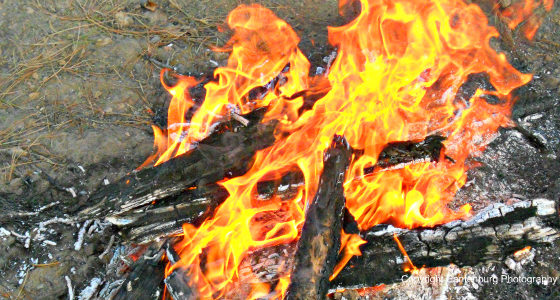
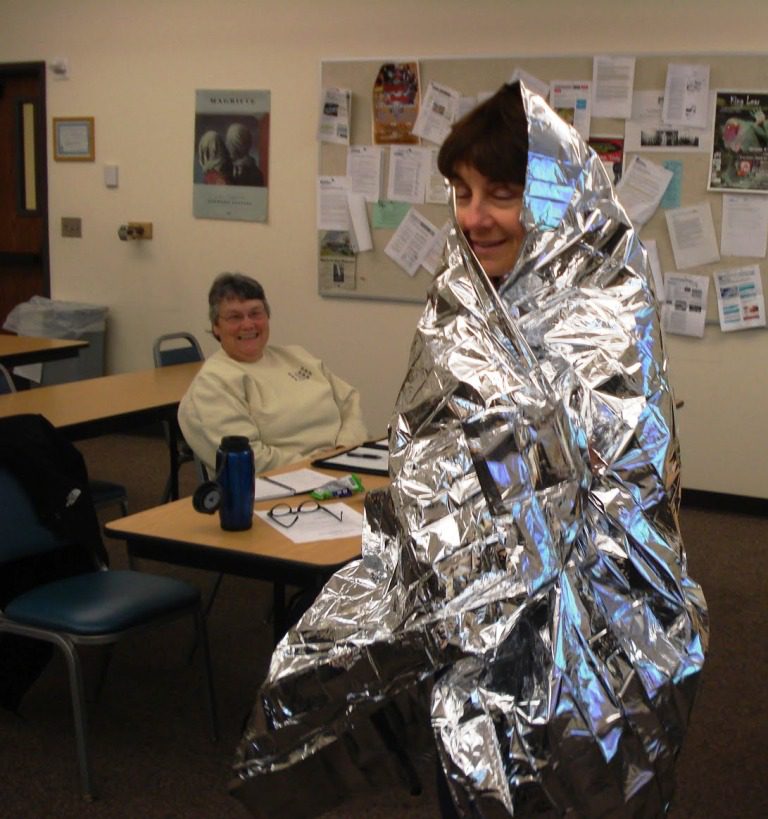
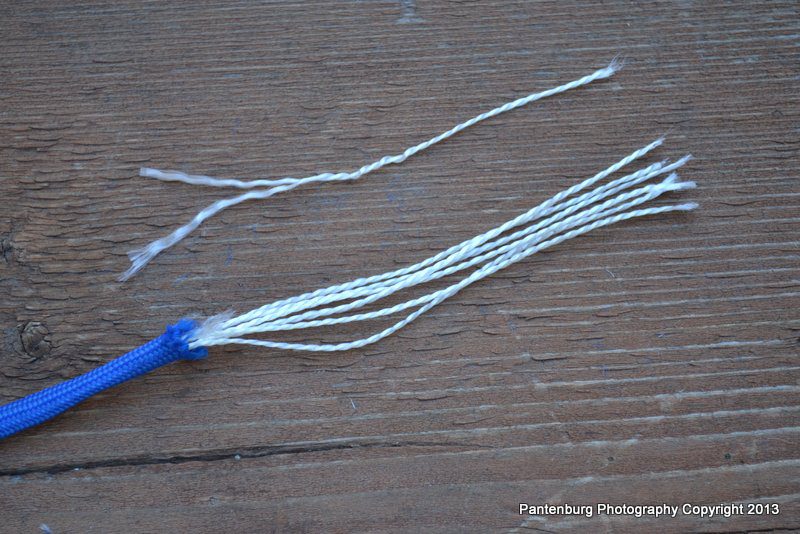
Leave a Reply